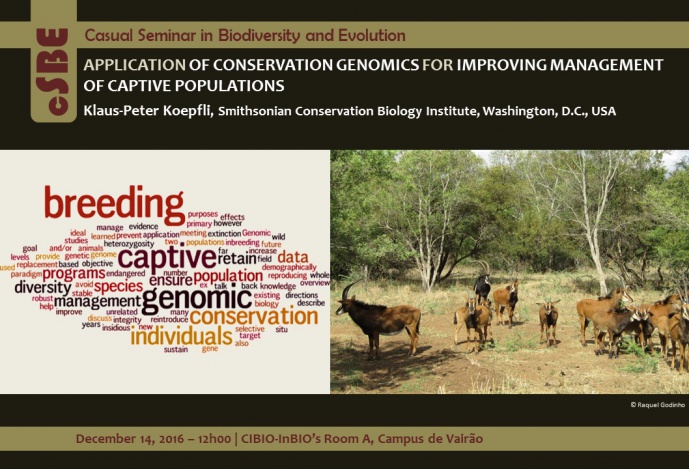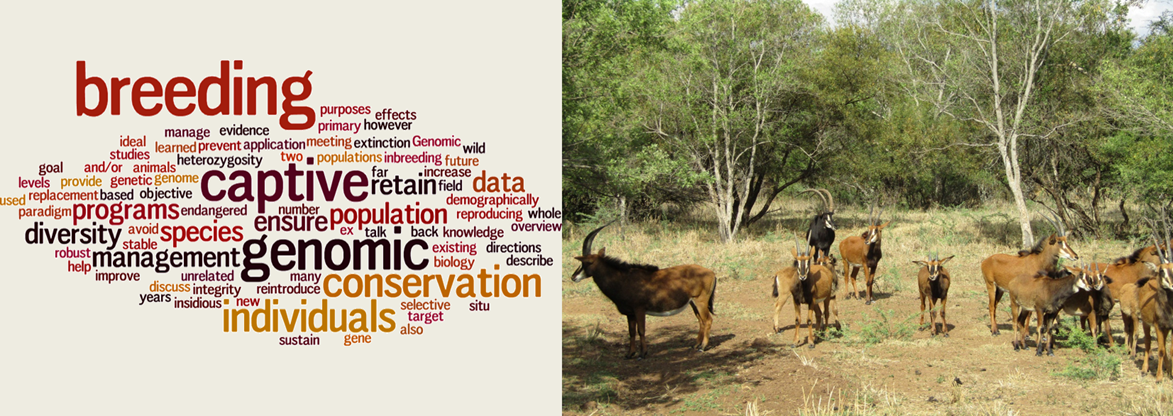APPLICATION OF CONSERVATION GENOMICS FOR IMPROVING MANAGEMENT OF CAPTIVE POPULATIONS

CASUAL SEMINAR IN BIODIVERSITY AND EVOLUTION

In conservation biology, ex situ (captive) breeding is used to sustain a population, prevent extinction of an endangered species and/or reintroduce individuals back into the wild. Such ‘conservation breeding’ has two primary purposes: 1) increase the number of individuals to ensure a demographically stable population; and 2) manage genetic diversity through selective breeding of unrelated individuals to ensure species integrity, retain robust heterozygosity, and avoid the insidious effects of inbreeding. An ideal goal for captive breeding programs is to retain ~90% of existing gene diversity for 100 years. There is objective evidence, however, that many breeding programs are not meeting this target, and animals are not reproducing at replacement levels. In this talk, I will describe a new paradigm of captive management and how the application of genomic data can help improve our knowledge and management of captive populations. I will also provide an overview of conservation genomic studies (those based on whole genome data) to discuss what we've learned so far and the future directions of the field.
Klaus-Peter Koepfli is a Visiting Scientist and Research Associate at the Smithsonian Conservation Biology Institute at the National Zoological Park in Washington, D.C. He is also a Senior Fellow at the Theodosius Dobzhansky Center for Genome Bioinformatics at St. Petersburg State University, St. Petersburg, Russia. His primary research interests are in the fields of conservation and evolutionary genomics. As part of the Genome 10K project, he and a team of international collaborators are working towards sequencing and analyzing genomes across the vertebrate tree of life.
[Host: Raquel Godinho, Conservation Genetics and Wildlife Management]
Image credits: Raquel Godinho